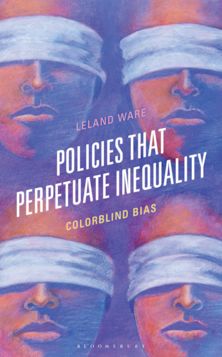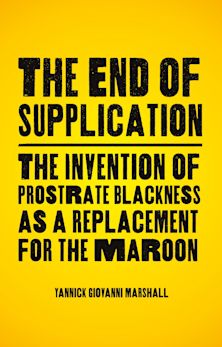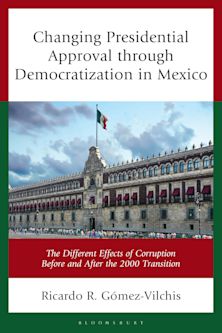- Home
- ACADEMIC
- Politics & International Relations
- Race and Ethnicity
- Korean Nuclear Diaspora
Korean Nuclear Diaspora
Redress Movements of Korean Atomic-Bomb Victims in Japan
Korean Nuclear Diaspora
Redress Movements of Korean Atomic-Bomb Victims in Japan
This product is usually dispatched within 1 week
- Delivery and returns info
-
Free CA delivery on orders $40 or over
You must sign in to add this item to your wishlist. Please sign in or create an account
Description
Korean Nuclear Diaspora: Redress Movements of Korean Atomic-bomb Victims in Japan comprehensively explores the history of Korean victims of the 1945 atomic bombings in Hiroshima and Nagasaki. Following the bombings and Korea's liberation from Japanese colonial rule, these Korean atomic-bomb victims dispersed across Japan, South Korea, and North Korea, and have often been left without any relief or redress for decades. Focusing on those Korean victims living in Japan, the author thoroughly examines how they have struggled to achieve recognition and support. Based on intensive fieldwork, archival research, and interviews with key figures from the Korean redress movement, this book analyzes how their movements have been significantly affected and constrained by the Cold War, unresolved colonial relations between Korea and Japan, nationalistic tensions between North Korea, South Korea, and Japan, and the national division both in the Korean Peninsula and within the Korean community in Japan. Despite these difficulties, the redress movements of Korean nuclear victims in Japan were sustained by their unique ideal of national “unification” and joint efforts with Korean and Japanese citizens, the history of which can deconstruct the mainstream narratives of Hiroshima and Nagasaki.
Table of Contents
Chapter 2: Korean Nuclear Diaspora in Japan, South Korea, and North Korea
Chapter 3: Bridges over the Korea Strait: Medical Assistance for hibakusha in South Korea
Chapter 4: Compatriot Victims in Two Homelands: A Redress Movement of North Koreans in Japan
Chapter 5: Unity within Disunity, Disunity within Unity: Korean hibakusha Divided over Ideologies
Chapter 6: Engraving the History of Korean Atomic-bomb Victims: Inter-Korean and Korean-Japanese Disputes over Monuments
Product details
| Published | Dec 15 2024 |
|---|---|
| Format | Hardback |
| Edition | 1st |
| Extent | 246 |
| ISBN | 9781666935752 |
| Imprint | Lexington Books |
| Illustrations | 4 BW Photos, 3 Tables, 1 Map |
| Dimensions | 229 x 152 mm |
| Series | Korean Communities across the World |
| Publisher | Bloomsbury Publishing |
About the contributors
Reviews
-
Takahashi outlines the complex links between Zainichi hibakusha, Japanese hibakusha, and Korean hibakusha in North and South Korea.
The New Yorker
-
Korean Nuclear Diaspora: Redress Movements of Korean Atomic-Bomb Victims in Japan is a major contribution to our understanding of Korean hibakusha who were in Hiroshima and Nagasaki in August 1945. It is especially strong in documenting the international aspects of Koreans affected by these catastrophes. All readers will gain a new understanding of Koreans who suffered from the atomic bombings and who responded by creating diverse movements for recognition and justice.
David Palmer, University of Melbourne
-
That approximately one-third of those who perished in the U.S. atomic bombings of Hiroshima and Nagasaki were of Korean descent was not widely known in the Anglophone world until the 1990s. Korean Nuclear Diaspora provides a detailed ethnographic account that updates our knowledge about Zainichi Korean hibakushas, i.e. those hibakushas (the irradiated/bombed) of Korean descent who have been minoritized yet integral to postwar, postcolonial Japan.
Lisa Yoneyama, University of Toronto; author of Hiroshima Traces: Time, Space, and the Dialectics of Memory
-
The first book-length study in English dedicated to the Korean survivors of the 1945 atomic bombings, Korean Nuclear Diaspora reveals how Koreans colonized by the Japanese and victimized by the U.S. weapons in Hiroshima and Nagasaski have grappled with the shifting exigency of the long Cold War. Drawing on the little-known experiences of Korean survivors in both North and South Koreas as well as in Japan, Yuko Takahashi presents a compelling picture of grassroots organizations and key individuals who led an extraordinary international activism toward a better recognition of and unity over the survivors' multifaceted suffering.
Naoko Wake, Michigan State University; author of American Survivors: Trans-Pacific Memories of Hiroshima and Nagasaki
-
One of the neglected stories of Hiroshima and Nagasaki is the presence of tens of thousands of Koreans on August 6th and 9th. Korean Nuclear Diaspora traces the journeys that brought these hibakusha to Japan, and their later struggles for redress in Japan as well as South and North Korea. Takahashi details how mechanisms of individual and communal identity construction, subjected to and resisting pressures from colonialism and Cold War politics, channeled the movements of Korean hibakusha for recognition, compensation, and dignity. Histories of Hiroshima and Nagasaki can no longer exclude this hidden chapter.
Robert Jacobs, Hiroshima City University
-
Though this is the story of Koreans in Japan struggling with colonialism, ethnic competition, and the atomic bombings, Takahashi offers insight into how people think, how they feel, and how, as a result, societies work. The specific social issues related to colonialism, the war, the bombings, ethnic conflicts, and ideological conflicts are important. Anyone, especially any historian, interested in the effects of the atomic bombings on society should read this book. Anyone interested in imperialism and ethnic competition should read this book. But at a more universal level, anyone interested in intense social conflict and the potential for resolution should study this book carefully. Through extremely careful, thorough, and microscopically detailed research and writing, Takahashi has performed an enormous service to humanity.
Steve Leeper, Hiroshima Peace Culture Foundation

ONLINE RESOURCES
Bloomsbury Collections
This book is available on Bloomsbury Collections where your library has access.



































